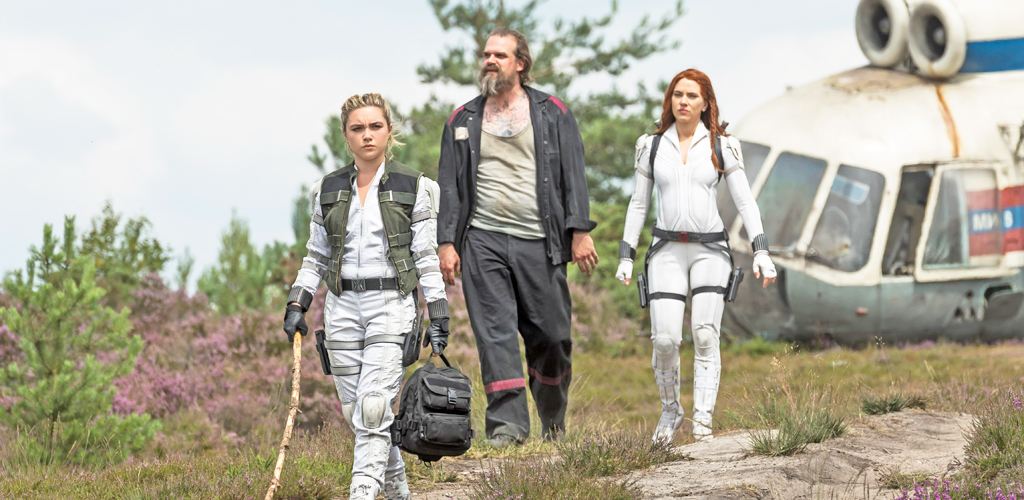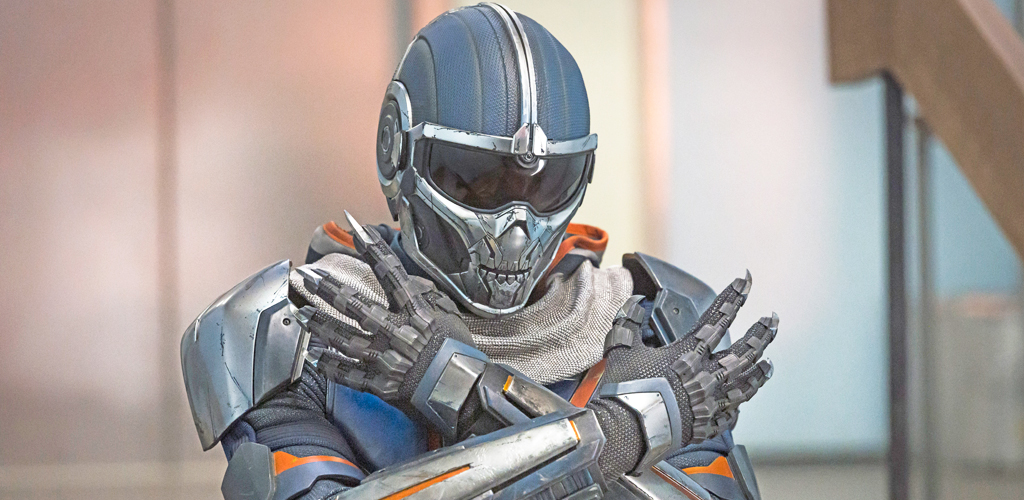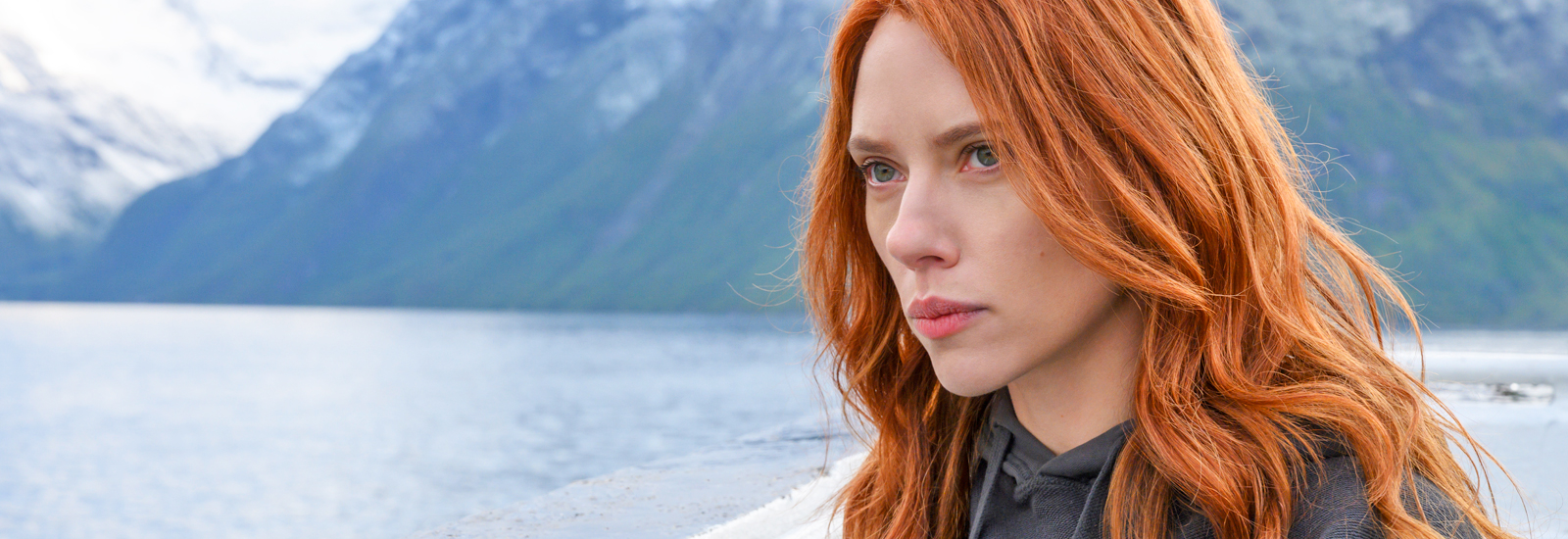Way back in late 2019, my optimism for an incoming trio of lady-nerd movies vaulted (ridiculously) off the charts. When I say “ridiculously,” that’s a hindsight term because, obviously, things didn’t turn out precisely as planned for anything in 2020. Three particular films — Birds of Prey, Wonder Woman 1984, and Black Widow — were scheduled to land within six months of each other. At the time, it felt like an estrogen-laden windfall after Captain Marvel‘s financial success on the tail of (fake)-negative review bombing by sexist trolls ahead of the movie’s release. The movie turned out to be a cosmic delight that (globally) grossed over $1 billion, even if a certain contingent subsequently could not handle the thought of Brie Larson jokingly holding Thor’s hammer. Although it felt strange for Captain Marvel to be the first female-fronted MCU movie while Natasha Romanoff (still) toiled away as a sidekick-to-dudes for over a decade, Black Widow would “soon” have its day as a solo act.
Well, we had to wait for Fast 9, and we had to wait for superheroine movies, too. Granted, Birds of Prey surfaced before shutdowns, and that was actually the last tentpole out there for over a year. If you weren’t enraptured by that movie (as I was not, since I thought the film took the wrong approach to a Harley Quinn solo film), then you had to hope for something better… eventually. Wonder Woman 1984 (on HBO Max) also did not scratch that itch for a lot of us, so I pinned my hopes on Black Widow. What did I hope for? A few things: (1) A gathering of butt-kicking ladies executing well-choreographed fight scenes; (2) An emotionally resonant story that, at least figuratively, paid proper respects to Natasha (who did not receive a funeral, unlike Tony Stark, in Avengers: Endgame).
Fast forward several months, and I’m pleased to report that the Scarlett Johansson-led vehicle did deliver upon my (tempered) expectations. That’s a notable feat, given that Kevin Feige meant for the movie (which directly follows the events of Captain America: Civil War) to launch Phase 4 (when it was already arguably past time for Natasha to have her own solo movie). Instead, WandaVision (followed by The Falcon and the Winter Soldier and half of Loki) did those honors first. The film, however, still cleanly fits into the timeline, and even perhaps more so in this accidental re-ordering, due to an explicit connection with one of these shows. Johansson’s Avenger receives a proper sendoff, Florence Pugh’s Yelena Belova positions herself to carry on the torch, and the audience receives well-executed action peppered with wryly comic moments.

Even more so, Natasha Romanoff’s “solo” picture (also bolstered by David Harbour and Rachel Weisz’s jointly wild accent work) truly introduces us to the title character. More than ever before, we get to know Natasha (who remained a bit of a cipher until death), her motivations, and what made her who she is, beyond scant references to “the Red Room” (the Russian factory that cranked out Widow assassins). A lot of that background comes from the reactions of Yelena, actually, given that Natasha’s been through so much that we don’t see too many visible emotions from her. Hell, most of what we’ve previously seen from her, emotionally speaking, was written all over her face in the moments before she rushed to achieve death before Hawkeye could do so in Endgame. Their dynamic, too, receives more background, since we (finally) hear more (after being teased since The Avengers) about what went down in Budapest.
Is the movie perfect? No. The action scenes don’t quite measure up to what the movie clearly wanted to do: evoke the pedal-to-the-metal feel of Captain America: The Winter Soldier‘s highway battle. In fact and to be blunt, some of the green-screen work in Black Widow‘s climactic fight looks not-so-great. None of that has anything to do, however, with the fact that this film turns the concept of the big, silly action movie on its head. It’s no longer about a tough guy swinging a hammer because (and no one questions this) he is “worthy,” or some billionaire playboy philanthropist in a fancy suit who commands respect with a reverse snap. Instead, Natasha’s made to earn everything through hand-to-hand combat after a (frankly) long and brutal road. She resolutely does so while (and this is not a spoiler) doing what she wants to do: use her “killing machine” abilities for good. And although we probably thought we understood what made Black Widow who she is, we receive a lot more shading here.
In short, Natasha Romanoff finally gets her due. She earns some peace of mind (during a story that takes place at least a decade before her death), and we get to see how she became who she was, beyond simply being trained as a female assassin. We also get a lot more context into certain pivotal decisions that she’s made along the way. Is the Taskmaster stuff relevant, too? Sure, it makes sense for Natasha’s journey, although the delivery is “off.” Anything else I’d say about that character would be a spoiler, so I’d best not say anything at all.

Instead, the most important character in this film is, well, Natasha, who is embracing those so-called negative qualities about herself — and that checkered past — and funneling them into a more worthy cause. We’re reminded that Natasha could have, after all, chosen not to defect to S.H.I.E.L.D. and to become a mercenary for hire, and yet, she was treated horribly by the U.S. government after Civil War. So, she took a blast to her past, which involved a journey that helped flesh out her sense of self, and that propelled her to be the glue that held the Avengers together after Thanos killed half the universe in Infinity War. I’d even argue that she did more than any other individual Avenger (although Tony Stark got the spotlighted moment) to reverse the Snap.
Ultimately to me, that’s what Black Widow stands for: to spotlight what Natasha truly wanted to accomplish. It’s not simply a film to fill in some timeline blanks for the first female superhero in the MCU, and it’s not only a movie to set up Natasha’s successor. Instead, this film is about Natasha reconciling with a lot of the “red in her ledger” and women standing both for themselves and together as a whole. That’s important, especially when I think back to how Birds Of Prey made faint motions at “emancipating” Harley when, really, she mooned over the Joker for half of the movie. And let’s face it, if Mr. J had shown up, Harley would have ditched the ladies, too (this was no girl-gang movie as sold). Natasha’s also not, like Diana in Wonder Woman 1984, obsessing over her dead ex-boyfriend to the point where she’s essentially romancing a body thief, who she summoned to possess some random dude, troublingly without consent.
Yup, Birds Of Prey and the Wonder Woman sequel screwed those pooches, hard. Rest assured that Black Widow keeps the mission clear without detouring into anyone’s pants. Natasha also becomes much more than the figure who sacrificed her life so that Hawkeye could weep while holding the Soul Stone and return to his family. She transcends infinitely more than the sum of her powerful moves and poses and hairstyles through the years, although if I must pick a favorite in that last department, I appreciate the chaos of her red Endgame roots before the sh*t really hit the Soul-Stone fan.
With Black Widow, there’s also something to be said about this being the “test” movie for Marvel after theaters reopen. If it fails, financially, then lady superheroes will receive the side-eye, but hopefully, those Disney+ premium upgrades will help bring in more pandemic dollars. Don’t forget, too, that A Quiet Place 2‘s strengths rested upon women, too, not only Emily Blunt but also Millicent Simmons. Let’s hope that, in the end, Black Widow can do what Captain Marvel did for lady power, all while glowing even “higher, further, [and] faster.”
‘Black Widow’ arrives in theaters and on Disney+ premier access on July 9.







